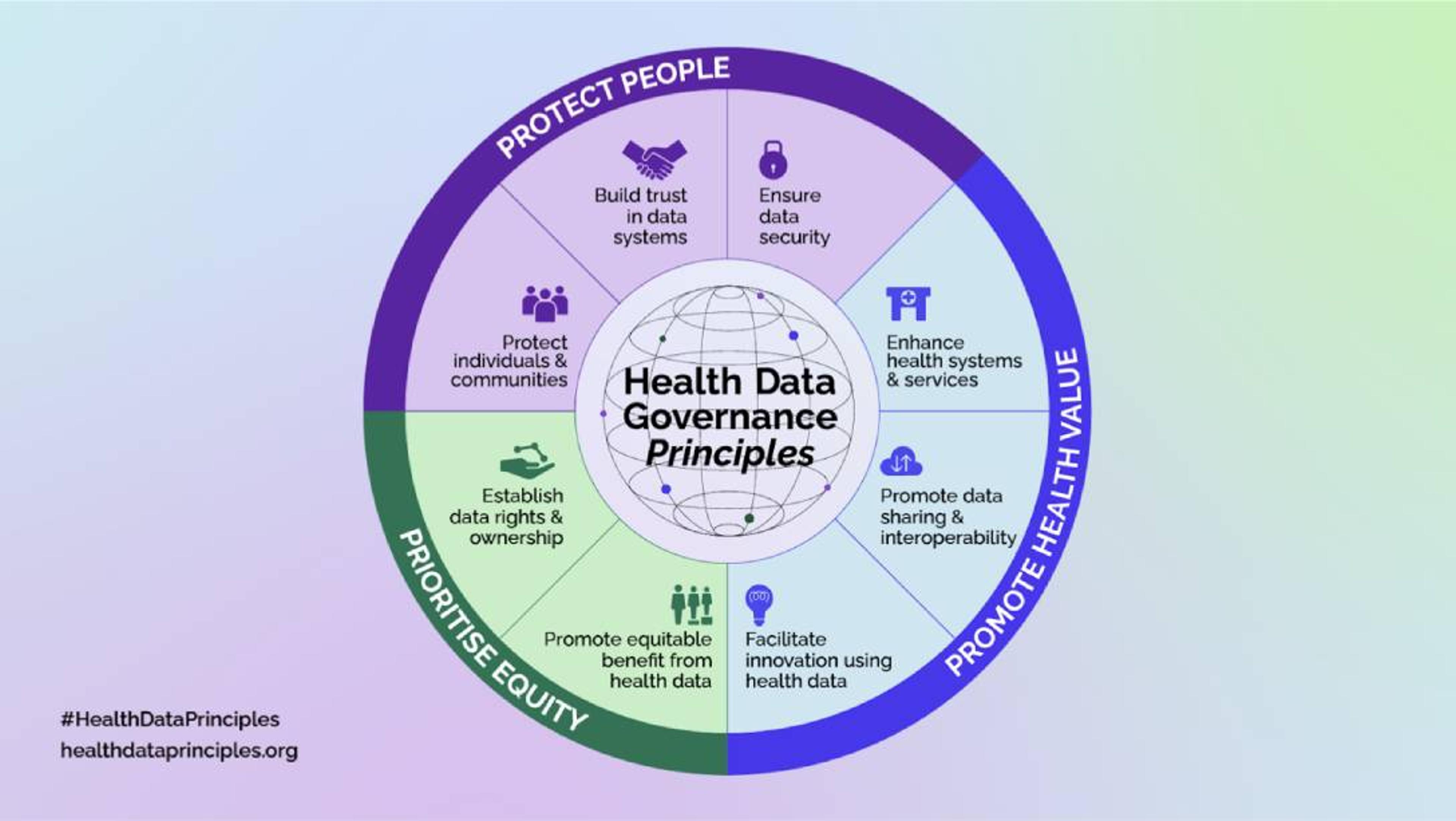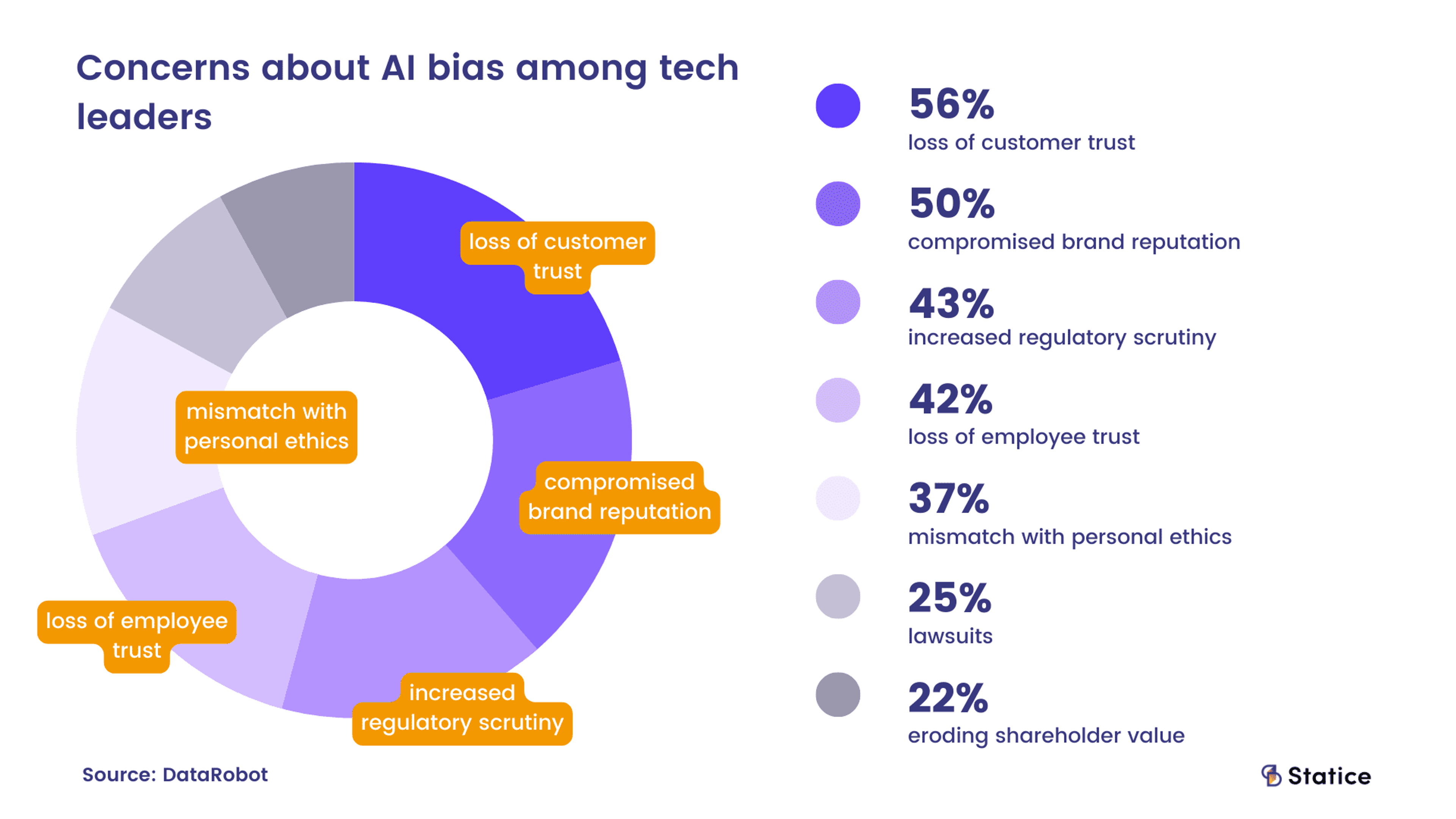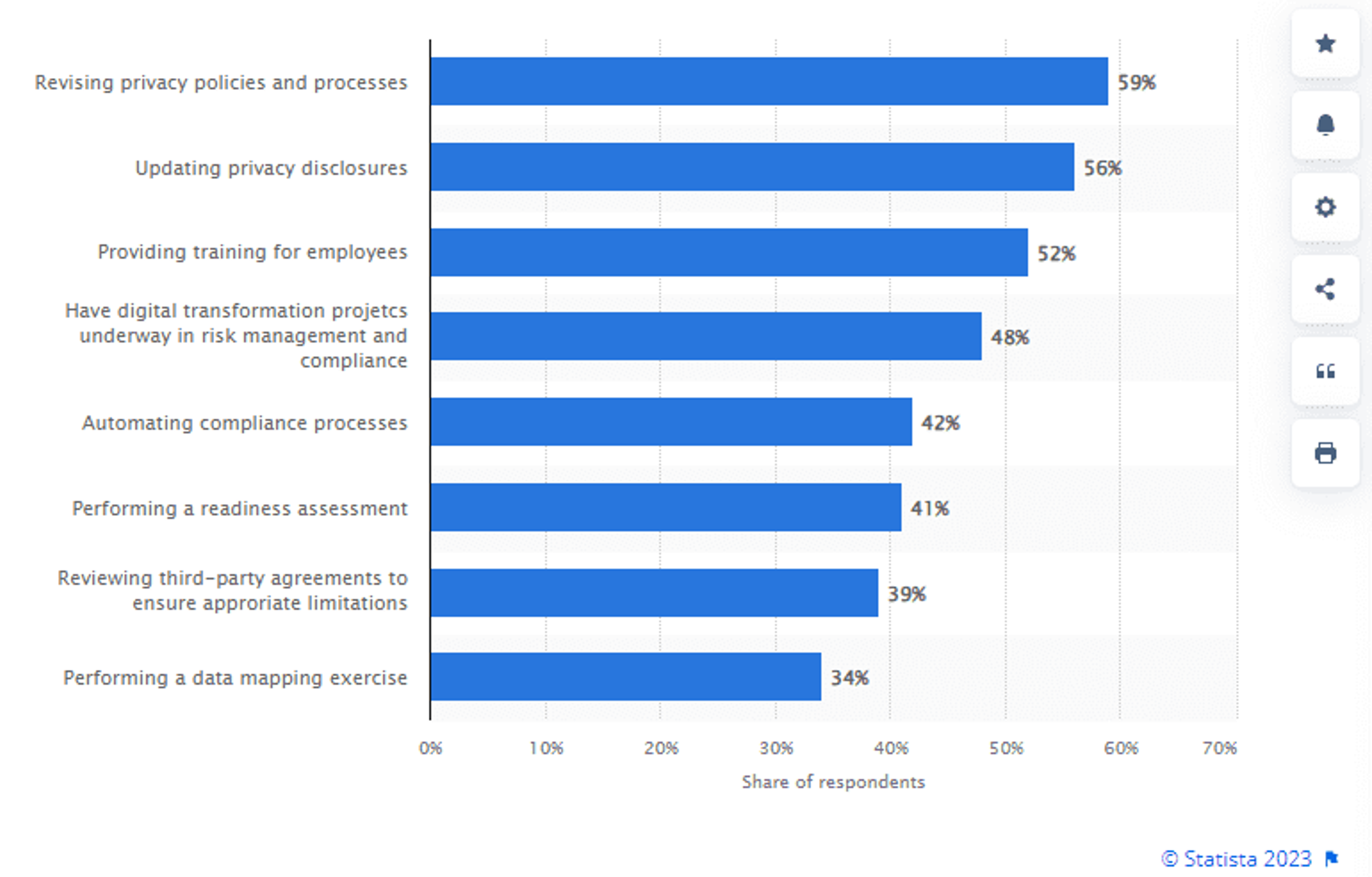blog
Building a Data Governance Strategy in Healthcare

SECTIONS
In the healthcare sector, a robust and effective data governance strategy is paramount. Not only does it empower healthcare organizations to succeed in today’s digital and data-driven business environment, it protects patient privacy and enhances the quality of patient care.
Data governance serves as a guiding framework for all data management practices and a critical resource for employees navigating their own use of data in their daily work.
In this guide, we’ll cover everything you need to know about creating a data governance strategy that’s effective and stands the test of time—key strategy elements, best practices and common challenges, and important considerations for data leaders moving into 2024 and beyond.
Key Takeaways:
- In healthcare, data governance is about more than operational effectiveness—it also drives patient privacy protection, quality of care, and patient outcomes.
- Data governance strategy should align with organizational goals while adhering to important regulatory standards.
- As AI plays a bigger role in data management, ensuring equity and non-bias in datasets must be a priority.
- Proactive change management helps employees more readily embrace changes in how data is governed at the organization.
- Data governance strategies should be agile and adaptable to changing regulations, technology, and trends.
Understanding Data Governance in Healthcare
Data governance in healthcare is the systematic management of a healthcare organization’s data to ensure its accuracy, accessibility, consistency, and security. The concept is critical in healthcare, a sector that relies heavily on precise and timely data for patient care, research, and policy-making.
Effective data governance involves establishing clear policies and procedures for data handling, ensuring compliance with legal standards and safeguarding sensitive patient information.
The significance of data governance in healthcare cannot be overstated. It is the backbone of data-driven clinical decision-making, as healthcare providers rely on accurate and complete patient data to diagnose and treat effectively.
Additionally, as healthcare data encompasses a vast array of information—from patient electronic health records (EHRs) and clinical trial results to insurance claims and more—managing data efficiently is crucial not only to operational efficiency and effective decision making, but also to protecting people, driving greater equity, and promoting the value of good healthcare.

Image Source
But governing healthcare data is particularly complex compared to other sectors for a few reasons:
- Sensitive Nature of Healthcare Data: Healthcare data includes highly personal information, necessitating stringent confidentiality and ethical handling to maintain patient trust and privacy.
- Stringent Regulations: Healthcare data governance must navigate and comply with rigorous legal frameworks like HIPAA, setting strict standards for data privacy and security.
- Data Volume and Variety: The sheer amount and diversity of healthcare data, encompassing everything from EHRs to genomic data, require sophisticated governance strategies for effective management.
- Rapidly Evolving Healthcare Tech: The fast-paced advancement of healthcare technology continuously introduces new data types and sources, demanding agile and adaptive data governance approaches.
Having a comprehensive and detailed healthcare data governance strategy is essential for managing these complexities and maintaining data integrity. A solid strategy helps to prevent data breaches and fosters a culture of trust and transparency.
At the same time, it allows your employees to get the most value possible from data you collect and maintain, from insights to enhance patient care quality to analytics that aid in decision-making.
Key Components of a Healthcare Data Governance Strategy
A robust data governance strategy in healthcare is built on several foundational elements, each critical to ensuring the integrity and efficacy of the data management process.
Data Quality
Central to any data governance strategy is the assurance of data quality. This encompasses accuracy, completeness, and reliability of healthcare data. Ensuring high data quality is vital for accurate clinical decision-making and effective healthcare delivery.
Data Stewardship
Data stewardship involves assigning responsibility for data management to designated individuals or teams. These stewards are accountable for maintaining data quality, enforcing policies, and facilitating appropriate data access and usage.
Policy Development
Creating comprehensive data governance policies is essential. These policies should cover data handling, storage, sharing, and security. They must be clear, enforceable, and regularly updated to reflect changes in the healthcare environment and regulatory landscape.
Compliance with Regulations
Data governance strategies must align with legal and regulatory requirements. In healthcare, this means adhering to laws like HIPAA in the U.S., which mandates the protection of patient privacy and the security of health information.
Equity and Non-Bias
Equity and non-bias are vital components of a data governance strategy, especially in healthcare. This involves ensuring that data management practices and policies are fair and do not inadvertently introduce or perpetuate biases. It’s about making certain that data collection, analysis, and usage are conducted in a way that fairly represents and serves diverse patient populations.
This is especially important as AI and machine learning become increasingly central to the way we collect and analyze data. Without proper management, AI-driven bias can result in lost customer trust, damaged brand reputations, increased regulatory scrutiny, lawsuits, and more.

Image Source
From an ethical standpoint, emphasizing equity in data governance helps address critical disparities in healthcare provision and contributes to delivering more inclusive and effective patient care.
Alignment with Organizational Goals
The data governance strategy should support the broader objectives of your healthcare organization. Whether that’s improving patient outcomes, enhancing research capabilities, or increasing operational efficiency, the strategy should facilitate these goals through effective data management.
Technology Integration
Implementing the right technology solutions is crucial for effective data governance. This includes tools for data analysis, storage, and security, which should be integrated seamlessly with existing systems.
Common Challenges in a Healthcare Data Governance Strategy
To carry the above steps out successfully and implement an effective long-term data governance strategy, it’s essential to know common data governance challenges and how to avoid them. These include:
Resistance to Change
Any organizational change—including that related to data governance policies—is often met with some resistance, especially when it involves new processes and systems. It’s important to proactively develop a change management strategy to drive adoption and acceptance of new policies. Clear communication and effective staff training can help to ease the transition.
Staff Training and Adoption
Implementing training processes and programs not only adds more to the workload for those in charge of data governance strategy, it involves a particular type of skill and expertise. It’s essential to work with HR leaders, vendors, and consultants (if relevant) to develop training programs that not only share the information employees need to know, but teach it in an engaging and applicable way.
Data Silos
Data often exists in silos across healthcare organizations, making comprehensive data governance challenging. To combat this challenge, leaders can implement integrated data systems and promote a culture of data sharing and collaboration across departments.
Ensuring Data Privacy
Protecting patient privacy is paramount in healthcare. To do this, it’s essential to ensure that all data governance tools and practices comply with privacy laws like HIPAA. Regular training on data privacy and security should be provided to all staff members. System security measures like access controls and ransomware protection should be implemented.
High-level data governance policies should also be designed with privacy as a top priority. According to Statista, updating policies and processes is the top action healthcare leaders are taking to better comply with data privacy regulations.

Image Source
This suggests that a new or revamped data governance strategy could be the key to addressing privacy concerns and solving challenges your organization may be experiencing.
Adapting to Evolving Regulations
Healthcare regulations are continually evolving, making compliance a moving target. It’s helpful to establish a proactive approach to regulatory monitoring to ensure that the data governance strategy is agile enough to adapt to new requirements.
Looking to the Future
As healthcare continues to evolve in this data-driven era, the importance of a robust data governance strategy is undeniable. The journey towards effective data management in healthcare is one that requires continuous improvement and adaptation. Healthcare organizations that proactively embrace and refine their data governance strategies position themselves at the forefront of patient care, innovation and operational excellence.
They are better equipped to handle the complexities of modern healthcare data, from ensuring privacy and compliance to leveraging data for insightful decision-making. Looking ahead, healthcare providers must remain agile, ready to adapt their data governance strategies to meet the ever-changing landscape of healthcare regulations, technological advancements, and patient needs.
Learn how Gaine’s solutions can enhance your data management and governance capabilities.
